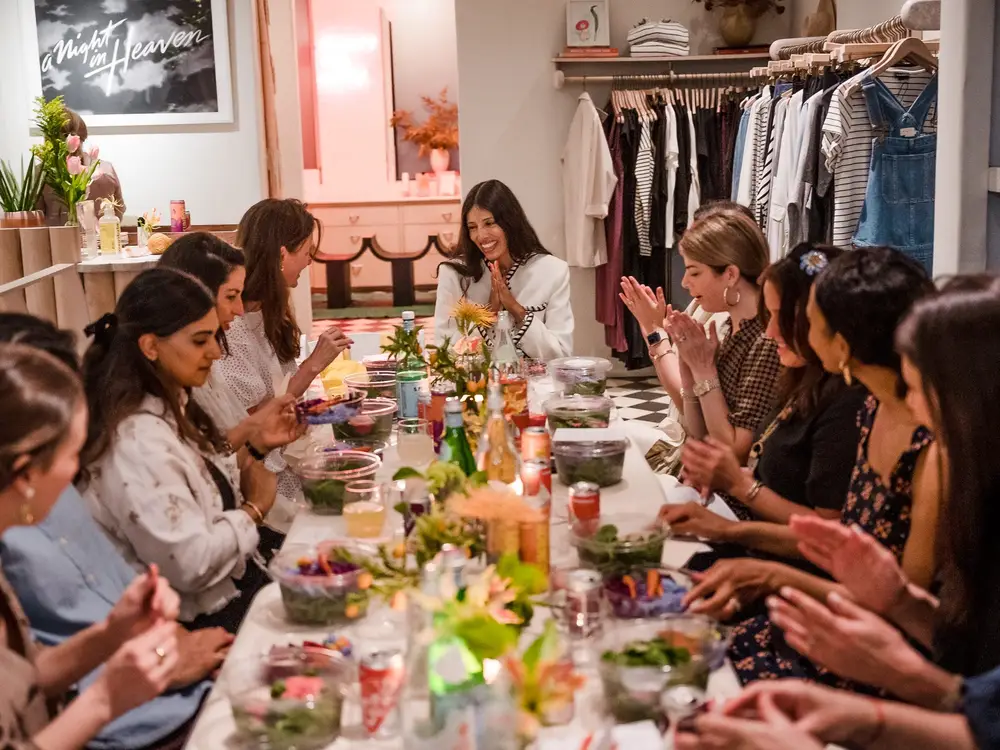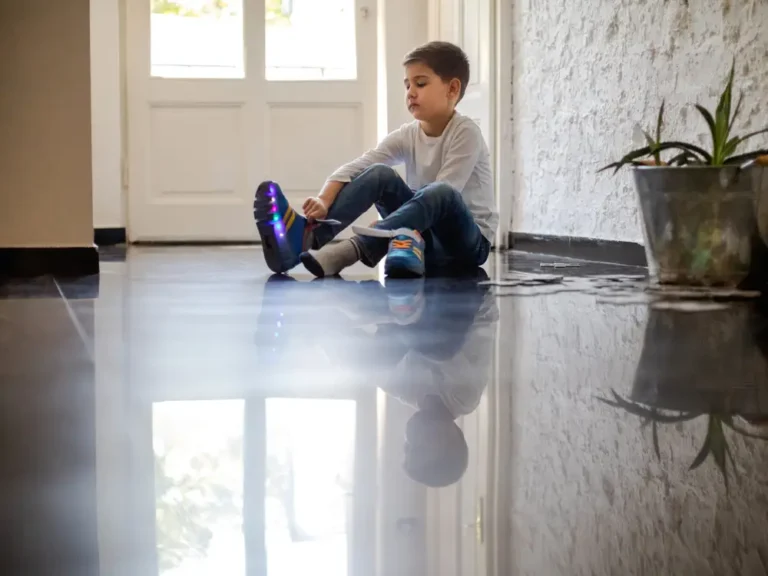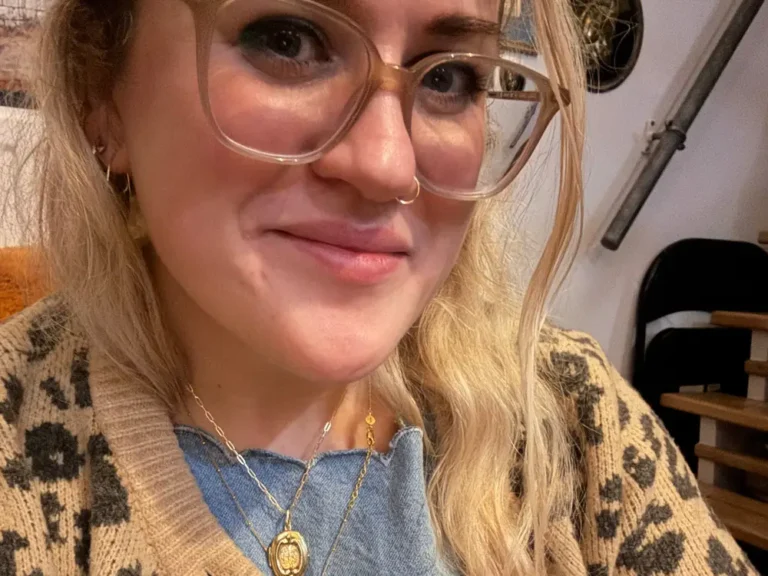What running a community for C-suite moms taught me about how to succeed

Marika Frumes founded Mysha to connect high-powered moms.
When I was pregnant with my first child in 2019, I felt very isolated. It was strange because I had made a career of bringing people together, especially as the cofounder of HER, a network for professional women.
I realized that I had spent years immersed in a high-powered, high-energy world. My friends were always going, doing, and achieving. But in pregnancy, all of a sudden I was tired. I didn’t know how to reconcile the feelings of still liking corporate and hustle culture while I was starting to move in a new direction. I struggled to shift from a very masculine corporate energy to the more feminine energy that motherhood required of me.
I searched for other moms-to-be who were experiencing a similar transition. I attended educational classes at a local baby boutique and workout classes for pregnant people, but I found it hard to connect.
Finally, about a week before my son was born, I posted on Facebook. I said I wanted to talk to other professional women delivering a baby within two months of when I had my son. I suspected those would be the women who understood what I was going through — and I was right.
I realized lots of founders and executives had a hard transition to motherhood
Within two hours, about 20 women had commented on my post. I made a WhatsApp group and started facilitating introductions. That was the beginning of Mysha, a community that brings together remote pods of women who have babies around the same time. Mysha also hosts in-person events in LA, New York, and Miami.
Because of the world I lived in, most of the people in my first pod were ambitious professional women. That’s who Mysha has continued to serve: 70% of our members are executives, and 26% are founders.
Like me, many of these moms have a tough transition to motherhood. They’ve spent so much time and energy building their careers and nurturing their first baby — their careers. Moving from that to motherhood can be very jarring. I want to provide the comfort I was looking for during that time.
High-powered moms can recognize their weaknesses
Lots of the women at Mysha are really good at their jobs. When they become moms and struggle with the transition, that can feel like a slap in the face.
Some can turn away from motherhood if they don’t think they excel at it. I’ve tried to create a space where they can talk about their worries and weaknesses.
We can say it’s OK when the nanny is better with the baby. Let’s recognize weaknesses and learn to grow — just like we’ve done professionally.
They connect through vulnerabilities
I’m a founder, a partner, and a mom — parenting is just one part of who I am. Women want to feel like they still have their own identities, and motherhood is just one aspect. That’s why Mysha events focus on moms, not babies.
At our networking dinners for members, a conversation prompt I use a lot is, “What is your ask at the moment?” It allows people to connect through their vulnerabilities, not just their accolades. It also builds community because when we ask for something, we give someone else an opportunity to shine. It’s not too different from relying on our coworkers or co-founders.
They have hard conversations
Just like at work, sometimes it’s important to have hard conversations about motherhood.
Recently, Mysha hosted an event with Erica Komisar, a psychoanalyst and author of “Being There,” a book that advocates for mothers (in particular) to prioritize being physically around their children for the first three years of their lives.
I knew it would be controversial because many people in our community struggle with guilt, and many working moms worry that they aren’t home enough. The event led to a lot of discussion, powerful emotions, and learning. Anything that can elicit such strong emotions is worth talking about.
Too often, we’re in echo chambers, like the conversation around professional moms versus stay-at-home moms. Getting outside of that can be powerful.
I’m a mom of two now. I’ve learned there’s nothing more important than realizing you’re not alone.





